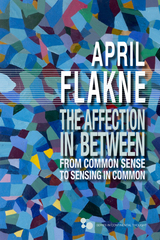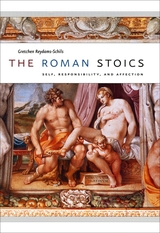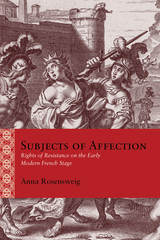

Notions of Christian love, or charity, strongly shaped the political thought of John Winthrop, Thomas Jefferson, and Abraham Lincoln as each presided over a foundational moment in the development of American democracy. Matthew Holland examines how each figure interpreted and appropriated charity, revealing both the problems and possibilities of making it a political ideal.
Holland first looks at early American literature and seminal speeches by Winthrop to show how the Puritan theology of this famed 17th century governor of the Massachusetts Colony (he who first envisioned America as a "City upon a Hill") galvanized an impressive sense of self-rule and a community of care in the early republic, even as its harsher aspects made something like Jefferson's Enlightenment faith in liberal democracy a welcome development . Holland then shows that between Jefferson's early rough draft of the Declaration of Independence and his First Inaugural Jefferson came to see some notion of charity as a necessary complement to modern political liberty.
However, Holland argues, it was Lincoln and his ingenious blend of Puritan and democratic insights who best fulfilled the promise of this nation's "bonds of affection." With his recognition of the imperfections of both North and South, his humility in the face of God's judgment on the Civil War, and his insistence on "charity for all," including the defeated Confederacy, Lincoln personified the possibilities of religious love turned civic virtue.
Weaving a rich tapestry of insights from political science and literature and American religious history and political theory, Bonds of Affection is a major contribution to the study of American political identity. Matthew Holland makes plain that civic charity, while commonly rejected as irrelevant or even harmful to political engagement, has been integral to our national character.
The book includes the full texts of Winthrop's speech "A Model of Christian Charity"; Jefferson's rough draft of the Declaration and his First Inaugural; and Lincoln's Second Inaugural.



The Roman Stoics reexamines the philosophical basis that instructed social practice in friendship, marriage, parenting, and community. From this analysis emerge Stoics who were neither cold nor detached, as the stereotype has it, but all too aware of their human weaknesses. In a valuable contribution to current discussions in the humanities on identity, autonomy, and altruism, Reydams-Schils ultimately conveys the wisdom of Stoics to the citizens of modern society.

Contemporary scholars have critiqued the modern rights paradigm for its failure to acknowledge the ways in which individual rights depend upon state protection and national belonging. Through a reappraisal of early modern French tragedy, Rosensweig provides a corrective to accounts of human rights that begin with the French Revolution, exploring previously unrecognized models for collective action that had emerged during the religious wars. Subjects of Affection reveals how French tragedy sustained these models of collective action by binding together individuals and groups through affect. Rosensweig places sixteenth-century political treatises in dialogue with dramas by Robert Garnier, Jean Rotrou, Pierre Corneille, and Jean Racine that were performed and published between 1550 and 1700. In so doing, she demonstrates how these tragedies, through their poetics and performance potential, stage a subject of rights whose collective constitution differs from the individualism of our modern rights framework. Through fresh insights and incisive readings, Subjects of Affection explores a form of political subjectivity that locates political power in connection to others—from staged characters and choruses to unseen collectives.
READERS
Browse our collection.
PUBLISHERS
See BiblioVault's publisher services.
STUDENT SERVICES
Files for college accessibility offices.
UChicago Accessibility Resources
home | accessibility | search | about | contact us
BiblioVault ® 2001 - 2025
The University of Chicago Press









